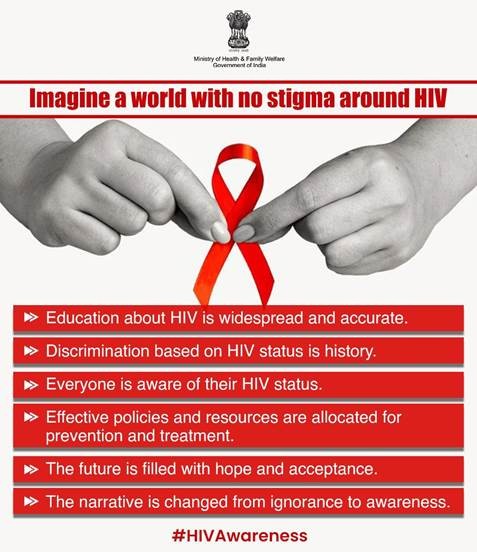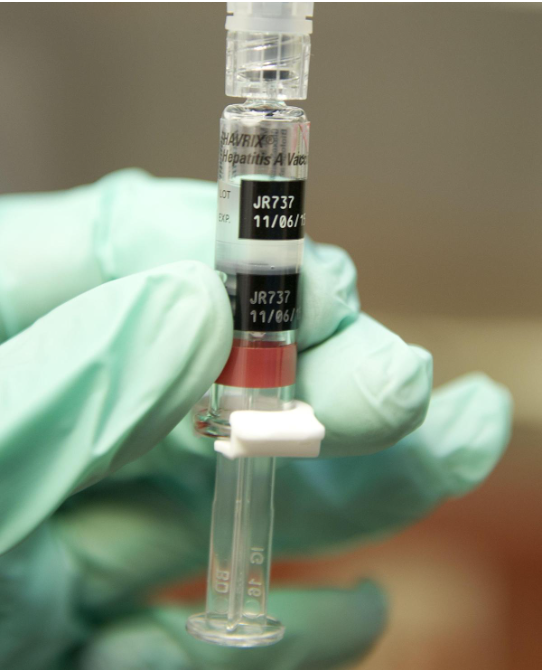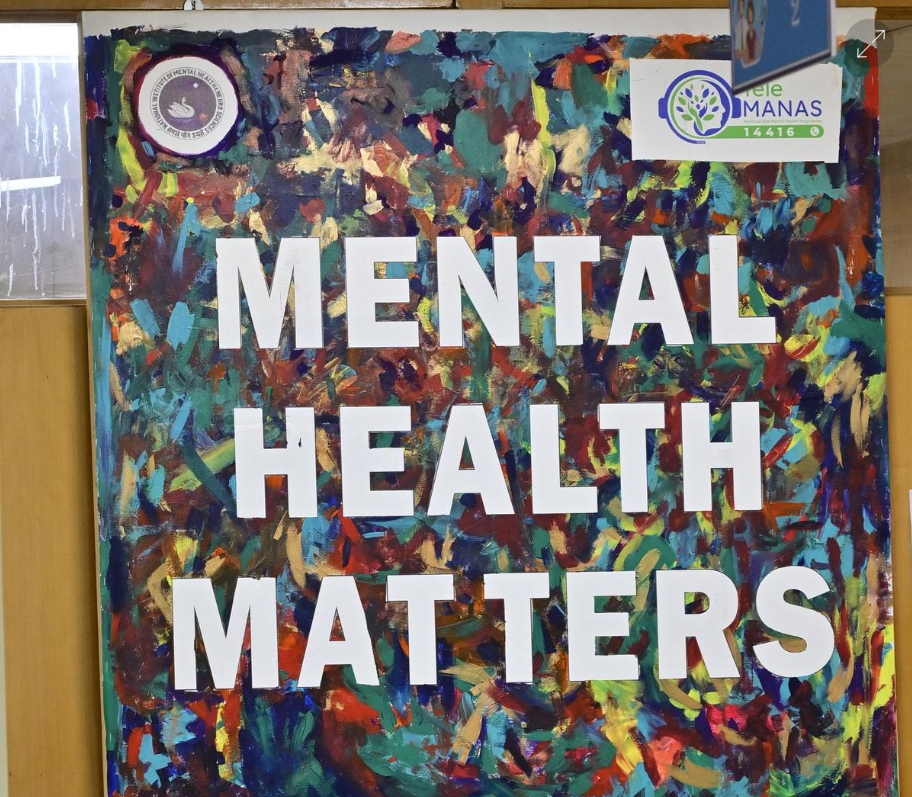Description
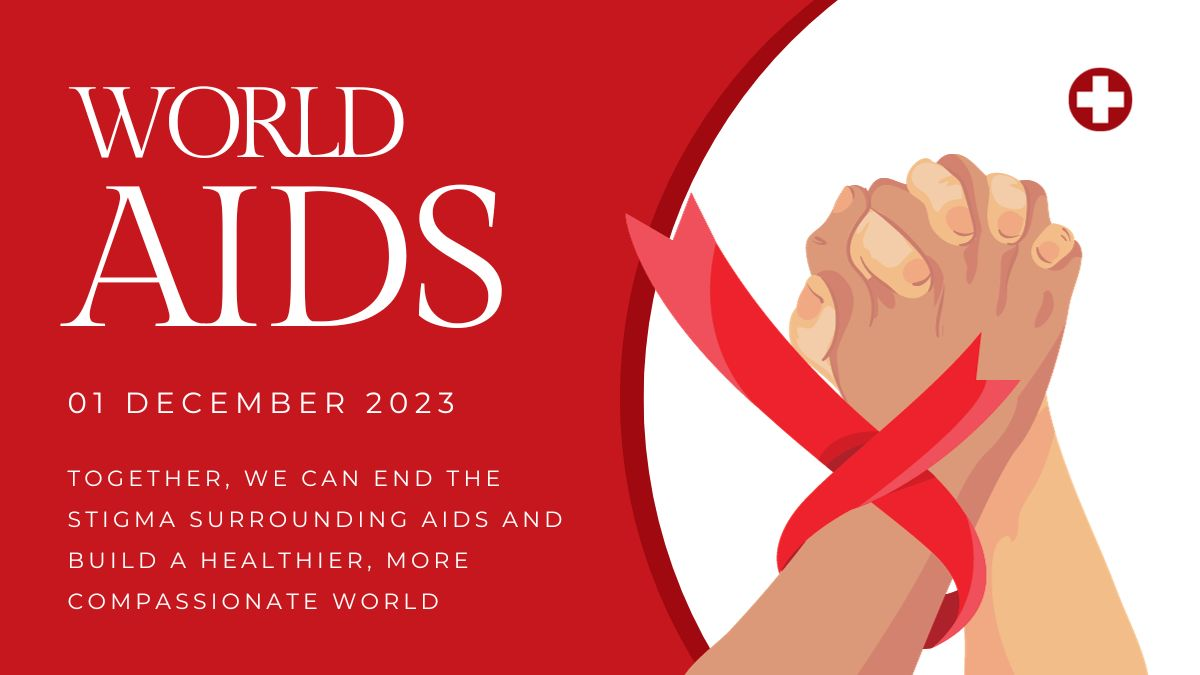
Copyright infringement not intended
Picture Courtesy: jagran.com
Context: World AIDS Day observed annually on December 1st, aims to raise awareness about HIV/AIDS, commemorate those who have lost their lives to the disease, show support for people living with HIV, and advocate for continued efforts in prevention, treatment, and research.
About World AIDS Day
- World AIDS Day is an annual event that aims to raise awareness and support for people living with HIV/AIDS, as well as to commemorate those who have died from the disease.
- It is observed on December 1st every year, and it is one of the official global public health campaigns marked by the World Health Organization (WHO).
- The theme for World AIDS Day 2023 is “Let Communities Lead”, highlighting the crucial role that communities play in the fight against AIDS.
- According to the latest data from the United Nations Programme on HIV/AIDS (UNAIDS), 7 million people were living with HIV worldwide in 2020, and 1.5 million people died from AIDS-related illnesses.
- Despite the progress made in recent decades, the HIV/AIDS epidemic is still a major public health threat, especially in low- and middle-income countries, where access to prevention, testing, treatment and care services is limited.
World AIDS Day 2023 focuses on empowering communities to lead the fight against AIDS. This means:
- Giving communities the resources and support they need to develop and implement effective HIV/AIDS prevention, treatment, and care programs.
- Empowering communities to make their voices heard and to hold governments and other stakeholders accountable for their commitments to ending AIDS.
- Recognizing the valuable contributions that communities have made and continue to make in the fight against AIDS.

Significance
- World AIDS Day serves as a platform for governments, NGOs, and individuals globally to come together, educate, and take action against the spread of HIV/AIDS.
- It's a day to honour those who have passed away due to AIDS-related illnesses and to support those currently living with HIV.
- The day provides opportunities for education on prevention, emphasizes the importance of access to treatment, and fights against the stigma and discrimination associated with HIV/AIDS.
Recent UNAIDS Report
- The report by UNAIDS, titled 'The Path that Ends AIDS,' emphasizes the political and financial choices involved in ending AIDS.
- The executive director of UNAIDS, stresses the importance of strong political leadership in successful HIV responses. This involves relying on data, science, and evidence, addressing inequalities, empowering communities, and ensuring equitable and sustainable funding.
- The report notes a fourfold increase in people on antiretroviral treatment worldwide, from 7.7 million in 2010 to 29.8 million in 2022. However, AIDS still claimed a life every minute in 2022, and 9.2 million people lack access to treatment.
- The 2022 HIV Estimates for India indicate approximately 2.47 million people living with HIV, with a decline of over 42% in new infections since 2010. Despite progress, AIDS-related deaths in 2022 were around 39,000. The government has allocated substantial funds to address the epidemic.
- India's commitment to combating AIDS is evident through the allocation of a significant budget (approximately USD 1934 million) for the National AIDS and STI Control Programme (2021-2025). The majority of this budget is financed domestically.
- India witnessed encouraging progress in 2022, with 79% of people living with HIV aware of their status, 86% of them receiving antiretroviral treatment, and 93% achieving viral suppression through viral load testing.
- India's strategic focus includes leveraging innovative solutions, removing barriers to access services, implementing policy reforms, and establishing welfare boards for transgender people.
- The key priority for India is reaching individuals aware of their status but not on treatment. To achieve the end of the AIDS epidemic, efforts must enhance political will, prioritize financing, integrate health systems, scale up prevention and treatment, enforce non-discriminatory laws, promote gender equality, and empower communities.
|
World AIDS Day
●James W. Bunn and Thomas Netter, public information officers for the Global Programme on AIDS, proposed World AIDS Day in 1987. Dr. Jonathan Mann approved the concept, leading to the first observance on December 1, 1988.
●Initially, the focus was on children and young people, aiming to combat stigma and increase awareness of AIDS as a family disease.
●The Joint United Nations Programme on HIV/AIDS (UNAIDS) began operational control of World AIDS Day in 1996, transitioning from a single-day event to a year-round communication, prevention, and education campaign.
|
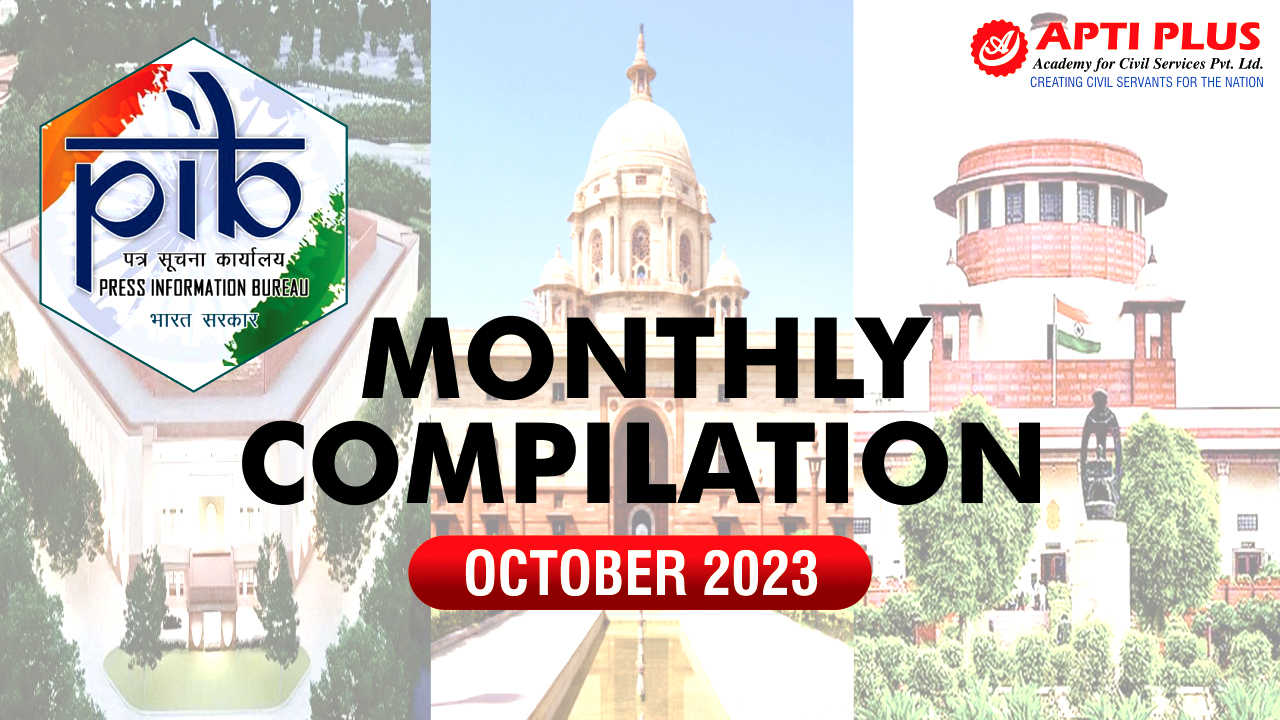
Must Read Articles:
HIV: https://www.iasgyan.in/daily-current-affairs/hiv-21
|
PRACTICE QUESTION
Q. What measures are being implemented in India to curb the spread of communicable diseases, and what are the key challenges faced in managing these diseases within the country's diverse population and geographic regions?
|







